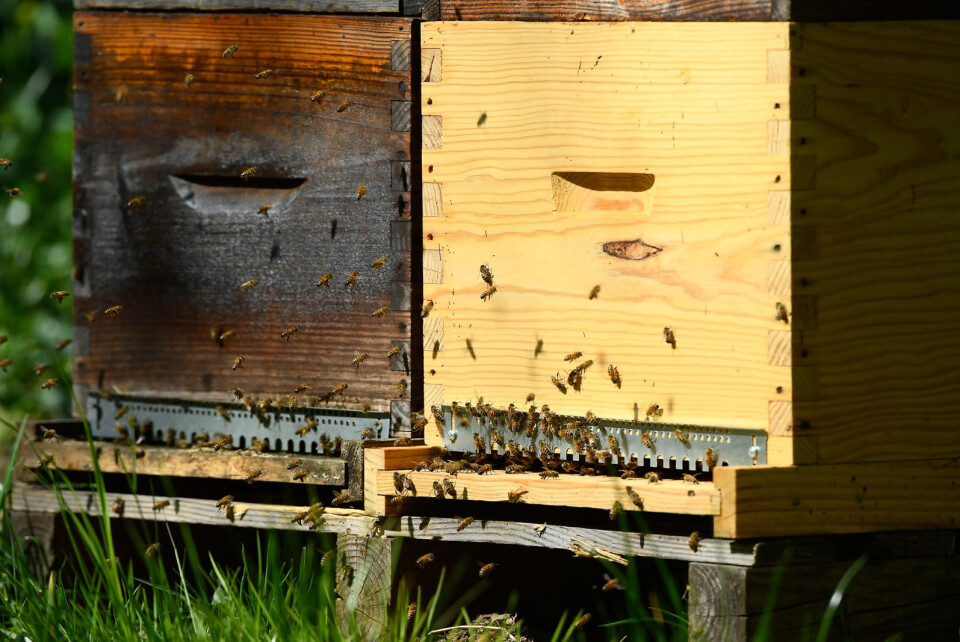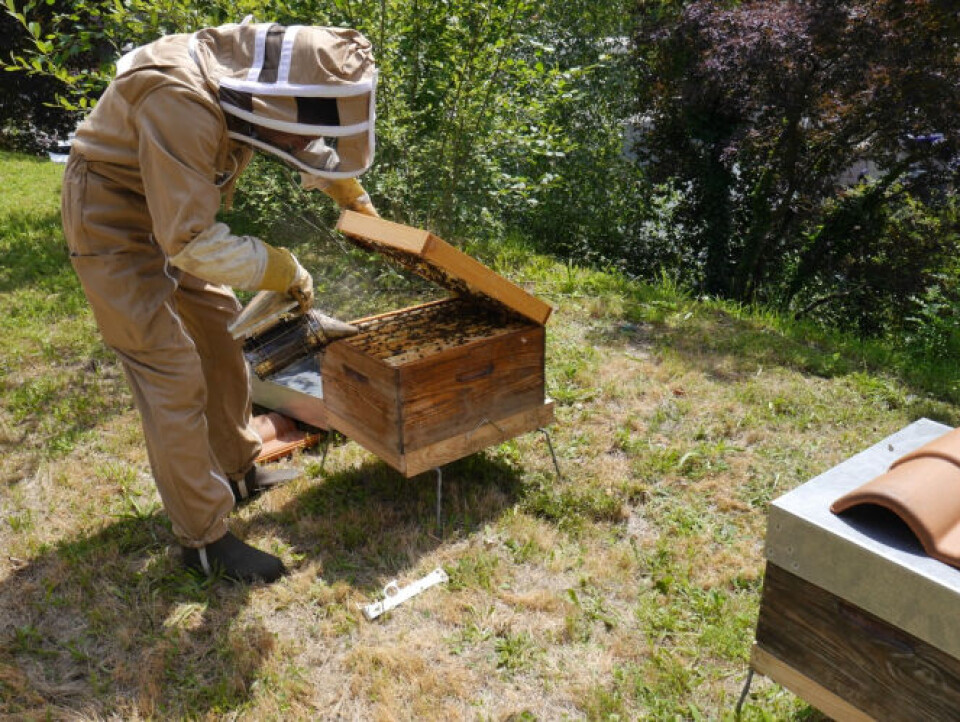-
Spring sees return of Asian hornets in France: Action to take now
The hornets are particularly damaging to bee populations
-
Know your cheeses and their seasons: which to eat in France in February
Cow’s milk cheeses dominate as winter comes to an end
-
Films and series to watch in February to improve your French
Every month we outline good film and TV series to improve your language
How to harvest your own sweet honey in France
Beekeeping is an increasingly popular hobby in France: not only is looking after a hive fascinating, but it can also be a source of delicious free honey

Each commune has the right to make local regulations, so before buying a hive, you should check at your mairie.
There can be extra rules if you live close to a school or a retirement home, for example. If you are not allowed to keep bees in your garden, you could arrange to keep them in someone else’s garden, or perhaps try to get an allotment where you could install a hive.
Remember that once a colony is living in your hive, you cannot move it.
There are also guidelines to bear in mind when choosing a location for your hive: it needs to be in a tranquil out-of-the-way spot where the bees will not be bothered.
To avoid the bees searching for water rather than making honey, it should be shaded, at least during the hottest hours, from around 11:00 to 17:00.
Your hive should have water nearby (you can rig up a drinker). Put some corks or other floating things in the water to avoid bees drowning.
Position the hive entrance so it is away from prevailing wind/rain – damp is a leading cause of disease in bee hives.
Consider winter conditions: your colony will not thrive in a spot which is frosty all winter long. Finally, it should have easy access for both you and the bees. Do not slap it down in a patch of wild bushes!
The received wisdom is that bees do not mind lawnmowers but dislike strimmers, if you are looking at options to keep nettles at bay.
Buying a hive can cost as little as €30 for a second-hand one, but be sure it isn’t being sold because the bees all got ill and died, as the hive could still be infected.

New hives cost anywhere from €60 upwards but a solid one in which bees will happily produce honey will cost around €150 new. It is also possible to buy a hive with a colony already installed.
If you buy an empty hive, you could, of course, wait for a wild swarm (essaim) to colonise it, but not all bees are the same.
Different breeds have different temperaments, feeding requirements and habits.
Buckfast bees – originally bred by a monk called Brother Adam at Buckfast Abbey in the UK – are a popular choice for beginners because they are gentle and produce lots of honey. Buying a colony from a professional means you know the breed and they should come with a veterinary health certificate.
Once you have a colony of bees in your hive, you have to declare it online, using form Cerfa 13995.
Doing this will mean you are immediately assigned a numéro d’apiculteur (a NAPI). You have to do this as soon as you acquire your first colony, and then again annually between September 1 and December 31.
If you declare a new colony in August 2021, you will still have to declare it again in the September-December 2021 period. The form is simple and does not require any supporting documentation.
Officially, in order to sell surplus honey, you need a NAPI plus a Siret number.
You may also want to consider insurance. It might be possible to add your bees to your house insurance, or if you join the local syndicat des apiculteurs, insurance is often included in the membership price (around €20 a year).
These syndicats often offer training courses about keeping bees, worth considering before taking the plunge.
Managing a hive is not complicated, but takes a certain amount of knowledge.
There are also, of course, many beekeeping books on the market, along with YouTube videos, and Facebook groups, including the very informative Facebook group Beekeeping in France.
The best way to learn about bee-keeping, however, is to contact local beekeepers and find out about courses.
Gaël Penichon, a professional apiculteur in Saint-Laurent-sur-Gorre in Haute- Vienne, said training is vital. “Most people start with a weekend course to learn the basics, but it’s a complex subject.”
He estimated a budget of around €800 is needed to buy a hive and a swarm of bees, plus the necessary equipment and protective clothing.
“But your teacher should be able to advise what to buy and where from.
“People usually buy new because there isn’t a big second-hand market.”
Apart from setting up the hive and introducing the bees, would-be beekeepers have to learn to harvest the honey and extract it from the comb.
“You need to be committed in order to keep bees successfully. Even in winter, there are jobs to do, preparing for the summer, and feeding the bees if they run out of honey. You feed solid sugar in the winter and sugar syrup in the spring.”
He said he talks to his bees.
'My bees know me, they are used to me and don’t mind me opening their hives'
“I do get stung from time to time, it’s a regular event during the season. Protective clothing works, but they still do sometimes penetrate it and sting.
“But it depends on lots of things. Bees sting more when it’s stormy, for example.”
It is important to manage the numbers of bees in a hive to prevent them swarming, which happens when there are too many in the hive, he said.
“A part of being a professional beekeeper is teaching people how to keep bees, so your teacher should be able to help you learn all these things until you’re able to manage independently.”
The Association d’Apiculture de la Vallée du Dropt in Lot-et-Garonne has an apiary near Issigeac where they meet each Thursday.
Member Helen Thorpe said: “More experienced members usually help newer members with any problems, though we do encourage members to fully understand what is entailed before branching out on their own.”
Reflecting the national enthusiasm for beekeeping, there are multiple beekeepers’ associations in France, aiming to protect bees and promote beekeeping, including the Union Nationale de l’Apiculture Française; the Syndicat National d’Apiculture; and the national federation ADA France.
Your local chambre d’agriculture will have information. An internet search for apiculture plus the name of your department will also produce interesting local results.
Frelons Asiatiques (Asian hornets) are a menace to bees in France, as well as to humans. They fly too slowly to catch airborne bees so lurk outside hives ready to attack them as they land and take off at the hive entrance.
Find out information from other local beekeepers about the danger in your area, and be prepared to set traps.
Related stories
Is there space in your French garden for hives in return for honey?
France’s beekeepers’ fears for 2021 honey harvest after record 2020
























